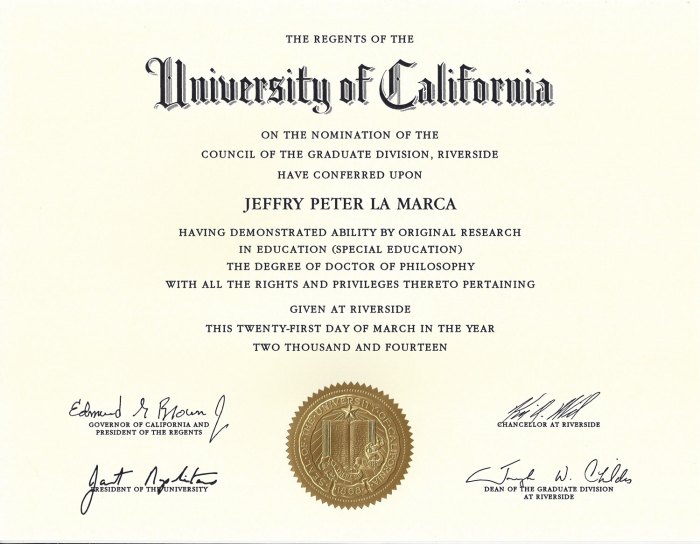
Is a law degree a doctorate? This question often arises when considering the prestigious nature of legal education and the rigorous training required to become a lawyer. While the Juris Doctor (JD) degree is a professional degree, it’s not technically a doctorate in the traditional sense. This article delves into the intricacies of legal education, exploring the similarities and differences between the JD and other doctorate degrees, and shedding light on the unique path to becoming a legal professional.
The JD degree, awarded after a rigorous three-year program, equips graduates with the knowledge and skills necessary to practice law. It’s a demanding journey, requiring mastery of legal principles, critical thinking, and effective communication. The curriculum encompasses various areas of law, including criminal law, contract law, property law, and more. This comprehensive training prepares graduates to navigate the complexities of the legal profession and advocate for their clients effectively.
Understanding the Terminology
To understand whether a law degree is a doctorate, we must first grasp the distinction between doctorates and professional degrees.
Doctorates and Professional Degrees
A doctorate is an academic degree that signifies advanced study and research in a specific field. It is typically awarded after completing a dissertation or thesis that presents original research. Doctorates are often considered terminal degrees, meaning they represent the highest level of education in a given field.
Professional degrees, on the other hand, are designed to prepare individuals for specific professions. They focus on practical skills and knowledge relevant to the chosen profession. Professional degrees are not research-oriented and do not require a dissertation or thesis.
Juris Doctor (JD)
The Juris Doctor (JD) is the professional degree awarded to graduates of law schools in the United States. It is the standard legal education required to practice law in the United States. The JD curriculum focuses on legal principles, legal reasoning, and practical skills necessary for legal practice.
History of the JD Degree, Is a law degree a doctorate
The JD degree evolved from the traditional Bachelor of Laws (LL.B.) degree. The LL.B. was originally a three-year program that focused primarily on legal doctrine. In the early 20th century, legal education began to shift towards a more practical and professional approach. This shift led to the development of the JD degree, which emphasized practical skills and legal reasoning. The first JD degree was awarded by Harvard Law School in 1902. The JD degree gradually replaced the LL.B. degree, and by the 1970s, it had become the standard legal education in the United States.
The JD Degree and Higher Education

The Juris Doctor (JD) degree is a professional degree that qualifies graduates to practice law. While the JD degree prepares students for legal practice, some graduates choose to pursue advanced legal studies through a PhD in Law. This path is particularly appealing to those interested in academic careers or conducting legal research.
PhD in Law (SJD)
A PhD in Law, often referred to as a Doctor of Juridical Science (SJD), is a research-focused degree that builds upon the foundation of a JD. The SJD program is designed for individuals who want to contribute to legal scholarship and engage in advanced legal research.
The SJD program requires a rigorous academic foundation. Applicants typically need a strong JD degree with a high GPA and a demonstrated commitment to legal research. They must also submit a research proposal outlining their dissertation topic and research methodology. The dissertation is the core component of the SJD program and serves as a substantial contribution to the legal field.
The SJD program is not a professional degree like the JD. It is a terminal degree designed for individuals seeking a career in legal academia or research.
JD Degree Compared to Other Professional Doctorate Degrees
The JD degree is a professional doctorate, similar to other professional doctorates like the Doctor of Medicine (MD) and Doctor of Philosophy (PhD). However, there are significant differences between these degrees.
- JD: Focuses on legal practice and prepares graduates for a career in law. It emphasizes legal skills, such as analysis, advocacy, and legal writing.
- MD: Focuses on medical practice and prepares graduates for a career in medicine. It emphasizes medical knowledge, clinical skills, and patient care.
- PhD: Focuses on research and prepares graduates for a career in academia or research. It emphasizes critical thinking, research methods, and original scholarship.
While all these degrees are doctorates, they differ in their goals, curriculum, and career paths. The JD degree is specifically designed for legal practice, while the MD and PhD degrees are focused on medical practice and research, respectively.
The Value of a JD Degree

The value of a Juris Doctor (JD) degree has been a topic of debate for decades, with perspectives evolving alongside the legal profession and the broader job market. While historically viewed as a guaranteed path to a successful career, the current landscape presents a more nuanced picture.
Historical and Current Perspectives on the Value of a JD Degree
Traditionally, a JD degree was seen as a key to a prestigious and financially rewarding career. Law firms were highly selective, offering lucrative salaries and benefits to graduates of top law schools. This perception was fueled by the prestige associated with the legal profession and the demand for legal services in a growing economy. However, the legal profession has undergone significant transformations in recent decades, impacting the value of a JD degree.
Salary Potential of JD Holders
The salary potential for JD holders varies widely depending on factors such as practice area, location, experience, and the specific employer. According to the U.S. Bureau of Labor Statistics, the median annual salary for lawyers in 2022 was $127,990. However, this figure masks significant variations.
- High-paying specialties: Areas like corporate law, intellectual property, and litigation often offer higher salaries, particularly in major metropolitan areas.
- Public sector and non-profit organizations: Lawyers working in government agencies, public interest organizations, or non-profit sectors typically earn lower salaries than those in private practice.
Job Market Trends and Future Outlook for Legal Professionals
The legal profession is facing several challenges, including:
- Increased competition: The number of law school graduates has consistently exceeded the number of available legal positions, leading to a highly competitive job market.
- Technological advancements: Legal technology platforms and artificial intelligence are automating certain tasks previously performed by lawyers, impacting the demand for some legal services.
- Economic fluctuations: Economic downturns can lead to reduced legal spending, affecting job opportunities for lawyers.
Despite these challenges, the legal profession is expected to continue evolving, creating new opportunities for legal professionals.
- Growing demand for specialized expertise: As businesses and individuals face increasingly complex legal issues, there is a growing demand for lawyers with specialized expertise in areas such as cybersecurity, data privacy, and environmental law.
- Increased emphasis on client service: Clients are increasingly seeking lawyers who are not only knowledgeable but also responsive, accessible, and tech-savvy.
- Emerging legal fields: New areas of law, such as space law, artificial intelligence law, and blockchain law, are emerging, creating new opportunities for lawyers with specialized knowledge.
The future outlook for legal professionals is likely to be shaped by the evolving legal landscape, technological advancements, and the changing needs of clients.
Closing Summary

In conclusion, while the JD degree is a highly respected and demanding professional degree, it’s not considered a doctorate in the traditional sense. It’s a distinct path that leads to a fulfilling career in law. Whether you’re drawn to the courtroom, corporate boardrooms, or public service, a JD opens doors to diverse legal careers. Understanding the unique nature of the JD degree is crucial for aspiring lawyers, allowing them to make informed decisions about their educational journey and future aspirations.
Key Questions Answered: Is A Law Degree A Doctorate
What are the typical job titles for someone with a JD degree?
JD graduates can hold various job titles, including Lawyer, Attorney, Legal Counsel, Prosecutor, Public Defender, Judge, and more.
Is a JD degree required to practice law in the United States?
Yes, in most jurisdictions in the United States, a JD degree is required to practice law.
What are the admission requirements for law school?
Law school admission requirements typically include a bachelor’s degree, a strong GPA, a high LSAT score, letters of recommendation, and a personal statement.
What are the benefits of pursuing a JD degree?
A JD degree offers numerous benefits, including career advancement opportunities, a high earning potential, and the ability to make a positive impact on society.


